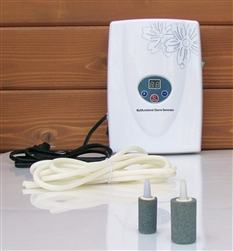While dentures are a highly effective replacement for natural teeth (and they do a great job of improving function, restoring comfort, and boosting confidence), new dentures do take some adjusting to. During the adjustment period, you may experience some trouble with the dentures. This is normal and typically lasts from one to three months, depending on your general health, condition of your mouth, your age, and the type of dentures that you wear.
Some of the most common problems that occur with new dentures include:
 Changes in your expression – It can take time for the muscles in your face, cheeks, and lips to adjust to your new dentures. Don’t be surprised if your normal expressions seem strange at first.
Changes in your expression – It can take time for the muscles in your face, cheeks, and lips to adjust to your new dentures. Don’t be surprised if your normal expressions seem strange at first.
Too much saliva – The process of digestion begins in your mouth. Anytime something new is placed in your mouth, such as food, your salivary glands begin to produce saliva. It can take days for for your saliva production to return to normal.
Soreness – The tissue in your mouth is quite sensitive and can easily become irritated by the pressure or rubbing from your new dentures. It is common for sore spots to develop. The dentures may need to be cut back in the sore areas or by the adjustments made need to be made by your dentist during follow-up visits, sometimes for weeks after receiving your new dentures.
Problems with speech – The way you speak and pronounce words is directly affected by your teeth. By their nature, dentures affect the way you talk differently from your natural teeth, and this may cause some speech difficulties. Be patient and practice. Consider reading out loud, and if you find certain words give you trouble, practice repeating them.
Difficulty chewing – Chewing may cause some discomfort in the beginning, especially until sore spots appealed.Some things you can do to make this easier include taking small bites, eating softer foods, and chewing gently. Try to chew primarily in an up-and-down motion, minimizing side to side motion in the beginning. As chewing gets easier, you can try other foods.
Kitchen sink syndrome – When you’re first getting used to your new dentures, they may make you feel like you have everything but the kitchen sink in your mouth. The new dentures feel strange in your mouth. It can take days or weeks for this feeling to subside.
Feeling loose – Until your dentures are settled all of the adjustments of been made by your dentist, the movements of your cheeks and tongue may try to dislodge her dentures. This can cause a feeling of looseness or of your dentures sliding. If you’re interested feeling loose, try closing your mouth, pressing your lips together, and gently sucking on your dentures. Before long, the dentures will settle, and the section will improve.
Gagging or nausea – New dentures may trigger a gag reflex, cause nausea and some people. This is due to the pressure of the denture on the upper palate. The dentist can make adjustments to the denture to relieve this feeling. But nausea typically dissipates within a few days.
Many of these problems can be minimized or even prevented by placing small diameter implants with the new dentures.


 Currently, I know that a number of you have been looking for ozonizers in order to follow my protocol (for prevention of gum disease). They can be found here:
Currently, I know that a number of you have been looking for ozonizers in order to follow my protocol (for prevention of gum disease). They can be found here: 
